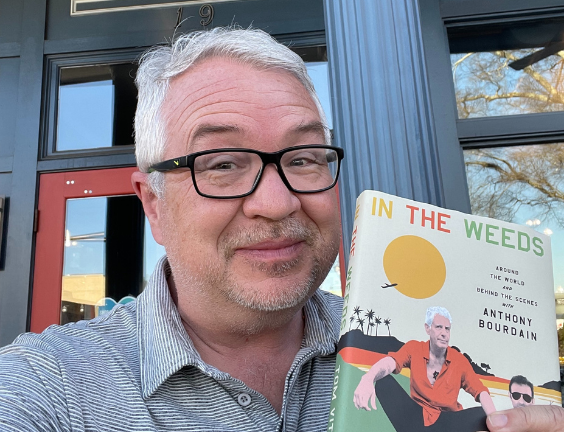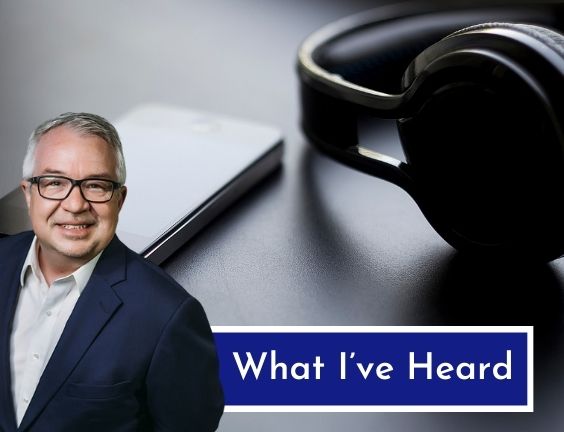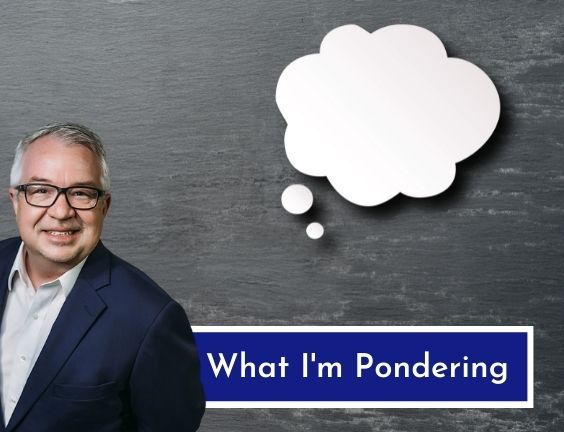What I’ve Read
I recently finished In the Weeds: Around the World and Behind the Scenes with Anthony Bourdain by Tom Vitale.
Vitale was a producer and director for No Reservations and Parts Unknown, for the Travel Channel and CNN respectively.
Vitale wrote the book in the aftermath of Bourdain’s death, which details the hard, difficult, and dangerous work that went into producing the shows and the highs and lows of working with someone as brilliant and as trouble as Bourdain.
Vtiale writes, “Tony was a big believer in failing gloriously in an attempt to do something interesting, rather than succeeding at being mediocre. ‘If it’s not interesting, we may as well be working a lunch counter,’ Tony would say.”
I recommend the book because it is fun and interesting — if heartbreaking at times. It is also packed full of lessons about managing a successful team and working with creative and difficult people. Trial lawyers and chefs are a lot alike that way.
I happened to see this book at Story on the Square, a little independent bookstore near my office. I highly recommend that you buy this book from a little bookstore.
Tyler Cowen has a fantastic interview of writer and pop culture critic, Chuck Klosterman, on his podcast, Conversations with Tyler.
There is a good segment in the episode about writing. Klosterman said, “I think you don’t become a writer until you no longer want to be like other writers. That’s sort of the key. The key is getting beyond the idea that there is some idea of what you think writing is that you can somehow match or find or replicate.”
Klosterman echoes a theme that has emerged in the Appellate Practice and Procedure class I teach with Judge Dillard at Mercer Law School.
Earlier in the semester, Justice Peterson recommended the students to the work of P.G. Wodehouse, the writer who created Jeeves. More generally, he recommended that future litigators read more novels.
More recently we had Keith Blackwell and Judge Andrew Pinson in class. While both agreed with the idea that lawyers should be well read, they echoed Klosterman, advising that we can’t become great at the job if we are at the lectern trying to be someone else.
Perhaps we are most ourselves when we are most engaged in dialogue with as many people as possible – on the page, in person, and through recordings. But fundamentally, we are more qualified to be ourselves than to be another lawyer we admire.
From my recent conversation with Tom Withers, on The Advocate’s Key Podcast, I’m pondering the way I prepare for court.
Tom Withers describes how he writes out the questions he will ask witnesses in court. I get the sense he drafts and revises those questions the way I do a legal brief.
Contrast that to my method, which is to draft a very meticulous set of bullet points to cover with a witness. And, in terms of execution, I tend to do something between using that outline and being totally spontaneous.
Back in my divinity school days, I recall a homiletics professor who said that the prepared preachers write out a complete manuscript of each sermon. But the most well-prepared preachers are those who can abandon the manuscript at the pulpit.
So, maybe the answer for me lies in writing out more verbatim questions but not actually using them when I get into court.
For an example of someone doing this well, check out Keith Blackwell in the GM case at the Georgia Supreme Court.
That’s what I’ve read, heard, and am pondering this week. How about you?
Scott



